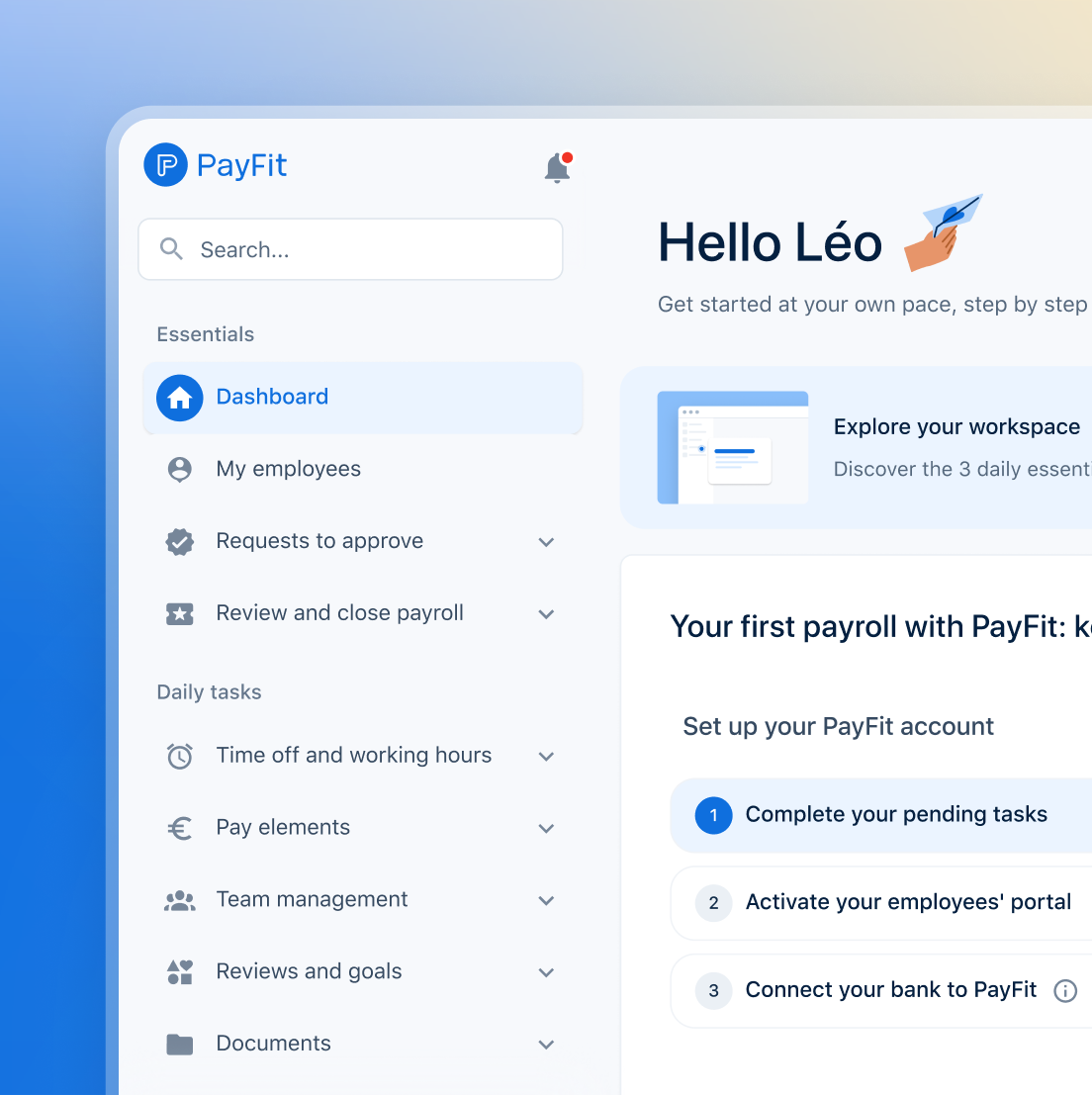✨ Health insurance, now in PayFit - learn more
💷 All the rates & thresholds you need to know for 25/26...right here
✨ The Payroll Journey: Start, Scale & Succeed Globally - learn more
✨ Health insurance, now in PayFit - learn more
💷 All the rates & thresholds you need to know for 25/26...right here
✨ The Payroll Journey: Start, Scale & Succeed Globally - learn more

As Ramadan gets underway, businesses across the UK have the unique opportunity to demonstrate support and understanding towards their Muslim employees who are observing this holy month. To foster an inclusive workplace environment, it’s essential for employers to understand the significance of Ramadan and how to accommodate those who participate.
This article aims to provide practical advice for employers on how to support Ramadan in the UK workplace, ensuring a respectful and inclusive workplace at all times.
Ramadan is the ninth month of the Islamic lunar calendar and is considered the holiest month for Muslims worldwide. It's a time of fasting, prayer, reflection, and community. During Ramadan, Muslims fast from dawn until sunset, abstaining from food, drink, and other physical needs to purify the soul, refocus attention on God, and practice self-discipline and sacrifice.
The duration of Ramadan is approximately 29-30 days, depending on the sighting of the moon. Since the Islamic calendar is lunar, the dates of Ramadan vary each year in the Gregorian calendar.
The start of Ramadan shifts by about ten days each year in the Gregorian calendar. Precise dates are determined based on moon sightings, making the exact beginning of Ramadan subject to slight variation.
Fasting during Ramadan is one of the Five Pillars of Islam. It’s observed to commemorate the month when the Quran was first revealed to the Prophet Muhammad. The fast is an act of deep personal worship in which Muslims seek a closer connection with God. It’s also a time for self-reflection, self-discipline, and a way to develop empathy for those less fortunate.

Build the right HR tech stack
Accommodating Ramadan in the workplace requires careful consideration and a degree of sensitivity, particularly when it comes to adjusting work patterns and providing employees space to worship during this important time.
Consider offering flexible working hours or the option to work from home. Allowing employees observing Ramadan to start and finish their workday earlier can help them manage their energy levels better, especially towards the end of the fasting period.
Allocate a quiet space where employees can pray during their breaks. This small accommodation can significantly impact your Muslim staff members' ability to observe their religious practices without disruption.
Try to schedule meetings and events outside of prayer times and avoid organising work-related social events that centre around food and drink during Ramadan.
From promoting inclusivity to recognising how fasting might affect employees during this period, supporting Ramadan in the workplace is something you can do at all levels of your organisation.
Promote an inclusive environment by educating your team about Ramadan and the reasons behind fasting. This can help reduce misunderstandings and foster a culture of respect and empathy.
Recognise that fasting employees might feel tired, especially in the afternoon. Showing understanding and support can go a long way in making them feel valued and respected.
Organise an iftar (the meal to break the fast) towards the end of Ramadan. This can be a great way to bring your team together and celebrate the efforts of those observing the month.
Embracing Ramadan and accommodating the needs of those who observe it can significantly enhance your workplace culture. It not only demonstrates respect and empathy towards your Muslim employees but also strengthens team bonds and promotes a deeper understanding of cultural diversity. By following the advice outlined above, employers can ensure a supportive and inclusive environment for everyone during the holy month of Ramadan and beyond.


Draft ‘Equality (Race and Disability) Bill’ 2024: new measures, what it includes, how businesses can prepare

In light of the International Transgender Day of Visibility 2024, let's explore how HR teams can effectively support transgender employees and create a more inclusive environment.

International Women's Day is marked annually on 8 March. It's an opportunity to celebrate the achievements of women all across the globe.

If your organisation has 250+ employees, chances are you'll need to submit a Gender Pay Gap report. We offer a quick summary of all you need to know.

Unretirement is the act of returning to work after retirement. Find out more, and how to support and benefit from staff returning to the workplace.

Reducing gender pay gaps within your business is key. Here, our partner, pihr, shows how data can help businesses get the insight needed to do so.

See what's new in PayFit
New features to save you time and give you back control. Watch now to see what's possible